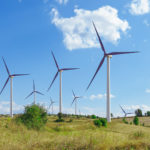Sustainability, key to the new global order in the post-Covid-19 world
Ebru Dildar Edin, Vice President of Garanti BBVA, participated in a talk organized by Turkey’s Business Council for Sustainable Development (SKD Türkiye) to discuss the social challenges following the coronavirus pandemic.

This virtual talk marks the start of a series of ‘Discussions on Covid-19 and Companies’. This first virtual meeting emphasized the need to create a new world order following the standstill caused by the pandemic, and to make sustainability a priority in the reconstruction. According to participants, the current situation should not mean that all resources are allocated to returning to the old economy. Instead, it should be considered an opportunity to make way for a new, environmentally-friendly economy in order to work toward a better world.
Ebru Dildar Edin, Chair of SKD Türkiye’s board of directors and Vice President of Garanti BBVA discussed the global impact of the pandemic and the challenges currently facing the corporate world. Dildar Edin explained that: “The corporate world is going through a very tough period as a result of the pandemic in the middle of a global struggle. In the new order that is established after the pandemic, sustainability should be our priority.”
The new order that we build must be focused on sustainability
The executive also recalled that while the pandemic has had a positive impact on the environment, environmental problems have not disappeared. “The climate crisis is part of our lives and is an emergency situation that continues to exist. I think we should turn this extraordinary situation into a new opportunity. We must demand that both companies and individuals act according to sustainable development principles. Without a doubt, the new order that we build after the pandemic must be focused on sustainability.”
Edin underscored the importance of the circular economy, a concept that SKD Türkiye has been promoting for some time now. After the linear economy, or the ‘take-make-dispose’ economy, operational models and circular economies began to be developed and proposed. In these models, waste is used as a resource and turned into products and services that can produce a new economic gain.
The circular economy is included as one of the most important aspects of the European Green Deal, which entered into force early this year and aims for the European Union to be carbon neutral by 2050.